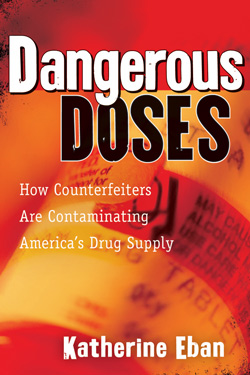Dangerous Doses: How Counterfeiters Are Contaminating America's Drug Supply by Katherine Eban (Harcourt).
 Most of us fill prescriptions at our local Walgreens or CVS pharmacy trusting that the medicine we're supplied will be the one the doctor ordered and in the dosage that's on the label.
Most of us fill prescriptions at our local Walgreens or CVS pharmacy trusting that the medicine we're supplied will be the one the doctor ordered and in the dosage that's on the label.
Most of us are far too naive. As Katherine Eban writes early in Dangerous Doses, "Our medicine moves through a gray market of middlemen who trade the drugs as they would any other commodity, seeking profits from ever-fluctuating prices. These sales can obscure the medicine's origin and make its purity impossible to guarantee. They also open the door to counterfeits."
Eban describes the weak laws, regulatory inertia, and political pressure that allow ineffective monitoring of pharmaceutical sales. Righteous indignation fuels her book as she describes a cancer patient, a liver-transplant recipient, and a person with AIDS who all suffer horribly as a result of medicines pharmacists unknowingly provide in doses much lower than their suppliers claim.
Dangerous Doses is less an argument for specific reforms than an cry of alarm and an absorbing good-guys-versus-bad-guys narrative. The good guys are five colorful law-enforcement agents who, with a young prosecutor whose own health depends on a supply of reliable drugs, in 2002 formed a task force called Operation Stone Cold. For the past three years the group has penetrated the world of seamy wholesalers in South Florida, which is ground zero for the counterfeit-drug business.
By the end of Dangerous Doses investigators have arrested some of the baddest wholesalers. But Eban points out that no one has yet been convicted and the work of solving this troubling problem has only just begun.




